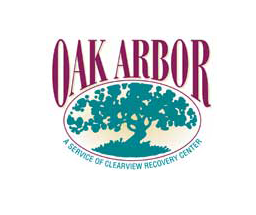What to Know About Communication While You're in Recovery
- By Admin
- •
- 05 Oct, 2019
- •

While you are recovering from addiction and working the 12 steps, you will learn new ways to express yourself. After all, some of the 12 steps revolve around communicating with others. While you strengthen and transform parts of your life, you can also become a more effective communicator. Here's what you need to know about communication during this time of your life.
Ask for What You Need
One of the first things you need to know about recovery is that it's okay to have needs and express them. Identifying what will help you stay sober and communicating that to those who want to help can empower you to have a successful recovery.
Also, be open about what isn't helpful. You may not always have things go your way. You may tell your sponsor that you don't want to work on a step anymore, yet they may insist you do. However, being open about it can lead to finding out what is beneath the initial resistance.
Honesty is Always the Kindest Option
In recovery, it's the truth that really does empower you to feel free. Start by being honest with yourself. This might take some time to really embrace as a habit, but it will feel so good when you do. Next, make it a practice to be honest with all the people in your life.
While it can be easy to lie to oneself and feel good about a lie to protect someone's feelings, they will probably learn the truth eventually anyway. In fact, the truth can help them realize they need to change something about themselves or their behaviors. It's always kinder to tell the truth even though a lie may be more convenient for the moment.
Truth is especially important for someone in recovery. Lying is not an option while working the twelve steps. They'll require a moral inventory that will take a great deal of inner searching that won't work if you're trying to deceive yourself or others. Also, being honest is easier and simpler than also trying to juggle lies during recovery.
You May Not Always Like What You Hear
The truth isn't always comfortable, so you may not always be happy with how people respond to you while you're in recovery. That's okay because it's a part of the process and the progress you're making. Also, the communication you receive from your family won't always be about showing you their support. Be prepared for your close loved ones to air grievances while you're in recovery.
Ultimately, though, the twelve steps will prepare you to deal with the harm that was caused by the addiction. As the issues come up and your loved ones address the past hurts with you, you may feel closer to them than you ever did before. The benefit of radical honesty during your recovery is that it can create a deeper level of intimacy with those you love.
You Don't Owe Anyone Information
Many people, of course, will reach out because of genuine concern, but some people may simply want fodder for gossip. If you don't feel comfortable sharing information with someone who has reached out, stand strong in the knowledge that you don't owe explanations to anyone.
If you want to respond to someone but don't want them knowing what's going on, simply tell them that you are taking some time to handle a personal matter. You may add that you appreciate their respect for your privacy at this time. That touch is likely to prevent them from following up with more questions. If they do, simply ignoring them should make your message even clearer.
Finally, addiction is a disease that can own and control those who have it until they are able to stand up for themselves and their right to freedom from its grip. If you are struggling with addiction, you are not alone, and you don't have to face it by yourself. Contact Oak Harbor today to speak to a caring member of our team about how you can get started on your recovery today.





